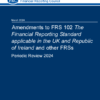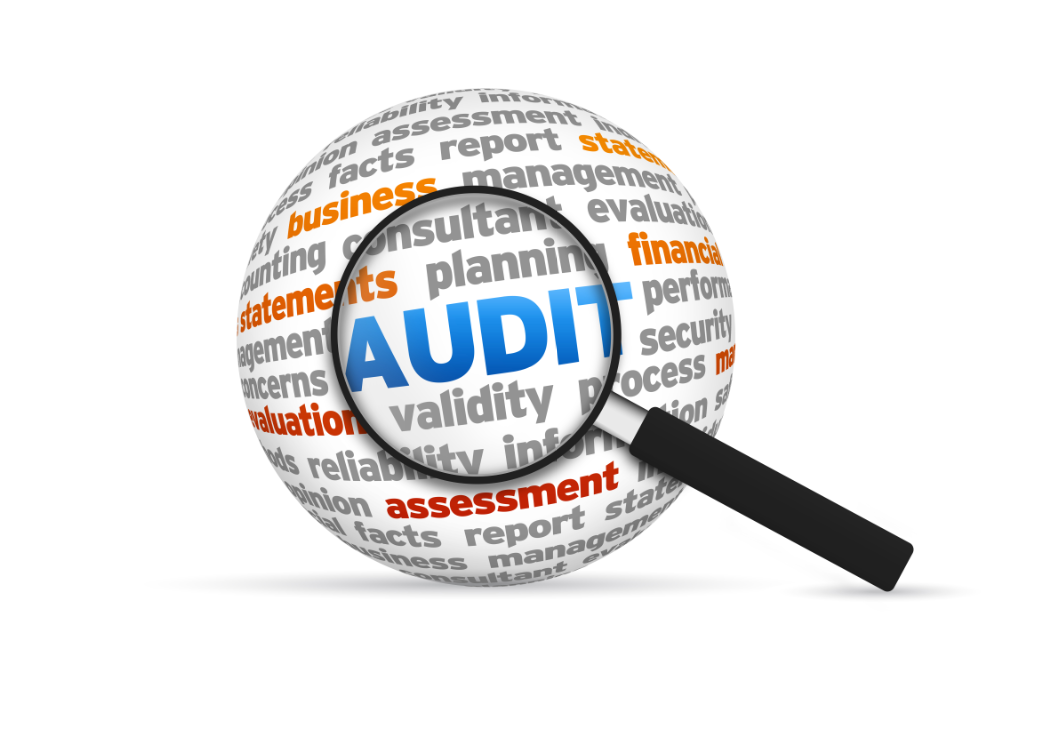
by John McCarthy Consulting Ltd. | Nov 3, 2020 | Blog, News
Come 31 December 2020, many external auditors will be planning for the audit busy season and the issue of remote stocktakes (more on this in a future blog) and carrying out remote audits.
31 December is the most common company year end in Ireland. Because the pandemic struck after 31 December 2019, the Coronavirus (Covid-19) was deemed, in most cases, to be a non-adjusting post balance sheet event. For 31 December 2020 period ends, auditors no longer have that luxury and will need to take even greater care with events taking place in their audit clients since the advent of the Coronavirus (Covid-19) in March 2020.
One UK firm I have come across is having partner consultations on every audit report they issue. Obviously, this approach may not be appropriate for all audits, as some client sectors are more affected by Covid-19 than others. It is very important that attention be give to the following key items:
- Transparent and logical documentation of any revised audit approach;
- Direct lines of communication within the firm and
- Written evidence of compliance.
Many of the issues faced by the management and staff of client entities are also faced by auditors. In both cases, where we come in and out of lockdown, there is a need to manage younger staff, staff with small children/dependents and staff working in less than ideal home environments. Auditors will need to include in their 2020 audit plans the potential risk and/or impact of secondary outbreaks that may lead to the reintroduction of restrictions in early 2021.
Five matters that are critical to consider:
- Consider accuracy, completeness, relevance, and reliability. These are the four critical audit evidence components. You have to use your judgment as to what is reliable, relevant evidence that you can use in an electronic environment.
- Beware of the potential for cyberattacks. There seems to be increased risk related to hackers trying to take advantage of Covid-19 using various scams related to the Pandemic.
- Use laptop cameras effectively for client and team meetings. Video discussions and interviews with clients are going to be essential in the remote audit process.
- Flexible schedules. Clients as well as audit team members will welcome this. Flexibility is called for here so everyone is willing to adjust timetables to make it convenient and more accessible for clients. Some people may work better from 7 a.m. to 9 a.m. Or 6 p.m. to 8 p.m., depending on daily routines.
- Be prepared for change. Post Covid-19 business will be done differently. By now technology has taught us that there are more ways of getting things done, than we had allowed, prior to Covid. Firms will need to plan for the short, medium, and long-term as to how remote working is going to impact.
For a complete list of our time-saving engagement letter templates for audit, non-audit, tax, grant claims, forensic services and other templates like letters of representation dealing with Brexit and Covid-19, visit our store here.
We also have a suite of 19 webinars if you want to catch up on your CPD before the end of 2020 here.
For the latest technical resources on Covid-19 please visit the
- Chartered Accountants Ireland Covid hub here
- ICAEW Covid-19 hub here

by John McCarthy Consulting Ltd. | Oct 20, 2020 | Blog, News
Our blog two weeks ago highlighted the main pieces of legislation that go into an audit letter of engagement, while last week we looked at the fundamentals of tax engagement letters.
This week we show you a checklist that covers worthwhile clauses for all types of letters of engagement:
- Exclusion clause. Because tax services can be broad, an exclusion clause that identifies what services will not be provided can be invaluable. For example, a payroll taxes preparation engagement might exclude subcontractor tax, personal or corporate tax compliance, and Forms P11D preparation.
- Deadline for submitting return information. Establishing a date by which the client must provide the information needed to prepare the return is essential.
- Limitation on use of the returns. Clients may submit tax returns and/or supporting data (like rental income computations) to third parties in lieu of a financial statement, for which potential liability can be addressed through a clause limiting the circulation of tax returns, supporting data and distribution and/or requiring advance written permission before allowing the client circulate the information to named third parties.
- Tax position clauses. Many times, what the client thinks is acceptable will conflict with professional standards. Establish language stating that tax positions taken must satisfy professional standards.
- Supporting documentation. Because a Revenue audit or investigation is always a possibility, remind clients of their responsibility to maintain adequate records to support the deductions claimed on the return. Include in the letter a reminder of the length of time for which the records should be maintained.
- Revenue Audit. Representing a client in a Revenue Audit may be more involved than the tax return preparation itself, for which many accountants may want to deal in a different manner to the main tax assignment e.g. by allowing for the use of specialist advice. The engagement letter should state that in the event of a Revenue Audit the assignment will be covered by the terms of a separately signed engagement letter.
- Outcome or results. The engagement letter is not a marketing device. Never guarantee the outcome or results.
- Limitation of liability. Ensure such clauses are used appropriately.
- Complaints/best service. Make it clear what the lines of communication are in the event of a dispute or claim (give the contact name for the Partner/Director in your organisation that will primarily handle client complaints) and in the event of failure to reach a satisfactory outcome, give the contact details of your professional body.
For a complete list of our time-saving engagement letter templates for audit, non-audit, tax, grant claims, forensic services and other templates like letters of representation dealing with Brexit and Covid-19, visit our store here.
We also have a suite of 19 webinars if you want to catch up on your CPD before the end of 2020 here.

by John McCarthy Consulting Ltd. | Oct 19, 2020 | Blog, News
Tax engagement letter fundamentals
Here we outline the fundamentals of good tax engagement letter content and suggest provisions that will help minimize legal liability faced by accountants in practice. The advice here will work for most other types of engagement letter also.
Tightening the language used in letters of engagement will help limit your professional liability.
Insurers and solicitors specialising in professional negligence claims will often agree that well drafted letters of engagement are one of the first lines of defence in a professional negligence claim against an accountant. They form the basis of an enforceable contract and should contain:
- caveats that are unique to the scope of the service provided (e.g. for services outside the scope of the assignment);
- the amount of risk inherent in the engagement; and
- references to ethical and professional standards.
Here are some of the fundamental objectives of a well-crafted tax letter of engagement:
- Address the letter to the appropriate parties in a formal introductory paragraph. Exclude any taxes not within the scope of the tax return and exclude children of the client or other entities owned by the individual tax client and include the appropriate year or years that are being prepared.
- Identify which returns are being prepared, and do not combine multiple returns. (For example, do not include a gift tax return service with an income tax return unless the proper disclaimer language for a gift tax return is included.) The following language is highly recommended.
‘We will prepare your [Year] income tax return. This engagement pertains only to the [Year] tax year, and our responsibilities do not include preparation of any other tax returns that may be due to any tax authority, If we receive specific instructions from you about other taxes or other tax years, these assignments will be the subject of separate engagement letters.’
- Deal with the price of the service, payment terms, retainers, additional charges for information received late, additional fees. Clarity and diligence must be adhered to, as many professional liability lawsuits, professional body ethical complaints, and loss of clients have resulted from misunderstanding these provisions.
Too often, vague phrases like the following is used in a standard letter:
‘Our fee for services will be at our standard hourly rate for the personnel assigned to this engagement [or fixed fees to cover other than hourly fee arrangements]. Payment is expected when our services are complete.’’
- Consider the following enhancements to the typical clause above:
- Specify the payment terms more clearly;
- If you wish, stipulate that a retainer will be required and will be applied toward the final fee and that the retainer is not an estimate of the fee charged for services;
- Identify when payment is expected;
- Provide for a termination of services if the fee is not paid in full;
- Use an additional charge clause for services not originally contemplated; and
- Include a provision for reimbursement for out-of-pocket expenses such as travel, recorded delivery, etc.
- Use a tax checklist for clients to complete and return.
The value of a tax checklist in defending a professional liability claim cannot be overstated. However, many tax advisers complain that their clients do not complete the checklist and often return it unopened. Accountants and tax advisers need to get the client to take responsibility for completing the checklist.
The language used in the engagement letter should establish this responsibility:
‘We will prepare the returns from information which you will furnish to us. It is your responsibility to provide all the information required for the preparation of complete and accurate returns. We will furnish you with questionnaires and/or worksheets as needed to guide you in gathering the necessary information. Your use of such forms will assist us in keeping our fee to a minimum. To the extent we render any accounting and/or bookkeeping assistance, it will be limited to those tasks we deem necessary for preparation of your tax returns’.
For a complete list of our time-saving engagement letter templates for audit, non-audit, tax, grant claims, forensic services and other templates like letters of representation dealing with Brexit and Covid-19, visit our store here.
We also have a suite of 19 webinars if you want to catch up on your CPD before the end of 2020 here.
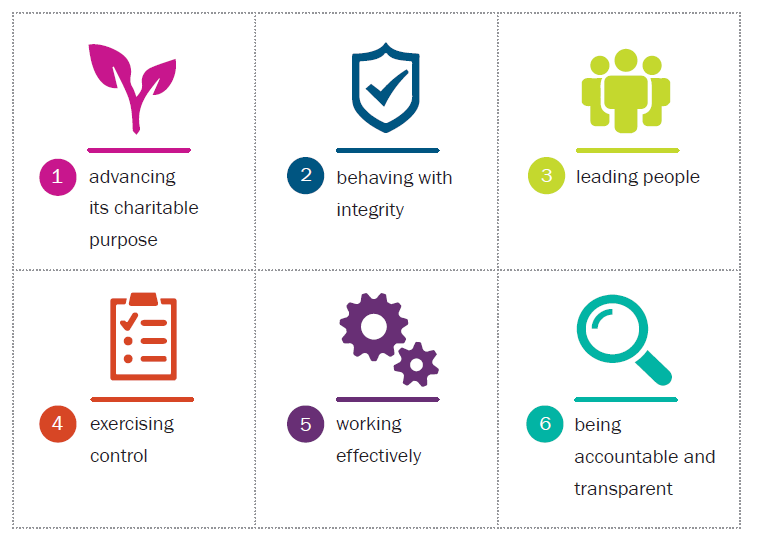
by John McCarthy Consulting Ltd. | Sep 29, 2020 | Blog, News
The Charities Governance Code Explained
In the last few weeks we have covered several topics in relation to Charities in Ireland arising from the 2019 Charities Regulator Report published in the summer.
We have covered the Types of Charities and Charities by the Numbers.
This week we will look at the Charities Governance Code (the Code). The Code explains the minimum standards required to effectively manage and control all registered charities in Ireland. These standards must be applied from 2020. The first year that registered charities will be expected to report on their compliance with the Code will be 2021.
The Governance Code is structured with two main types of charity in mind:
- volunteer-only charities and
- charities with a small number of paid staff
as these types of charity reflect the majority of registered charities in Ireland.
The Code is tailored to encourage charities of all sizes to have better administration, financial and management systems in place. Underpinning the Six Principles are two main types of standard (depending upon the size and complexity of charities) which are
- the ‘core standards’ (of which there are 32 in total) that all charities must apply (including the charity’s main purpose, whether any private benefit arises, goal setting to raise funds, annual review), and
- ‘additional standards’ that only certain charities need apply (including developing strategic and operational plans).
The six principles of governance that all charities must apply are:
- Advancing charitable purpose – how the charity fits into one or more of the four categories of ‘charitable purpose’ as defined in the Charities Act, 2009;
- Behaving with integrity – setting an ethical culture and tone;
- Leading People – providing leadership to volunteers, employees and contractors;
- Exercising control – putting mechanisms in place to abide by all legal and regulatory requirements
- Working effectively – induction training for Board members and running efficient Board meetings, having people with the right mix of skills and experience; and
- Being accountable and transparent – accounting for the money (including producing unabridged financial statements) and being open/transparent about all charity matters.
Who is the Code for?
The Governance Code document should be used by all trustees of any kind of charity, being:
- Committee members;
- Council members; and
- Board members or directors of the charity.
How should the Code be used?
Trustees should make themselves familiar with the six principles of the Code and should consider them when assessing compliance with actions taken within the charity and ensure that documentary evidence is kept demonstrating how the standards are met.
Reporting Compliance
From 2021 every charity must submit an annual return to the Charities Regulator demonstrating compliance with the Code and providing valid reasons for non-compliance.
Charities will use a 20 page Compliance Record Form identifying actions taken to meet the Governance Code standards, while the amount of evidence expected to support the level of compliance will vary, depending on the size and complexity of the charity.
The guide to the Governance Code with which all trustees should be familiar, is available here.
New to our website this week are five engagement letter templates:
Our Charity Accounting and Charity Audit webinars are available here for immediate access and come with much support material as an extra free bonus and we have several audit template letters for charities that are up to date for SORP, GDPR and Coronavirus (COVID-19), downloadable for immediate tailoring in MS Word.
For a full list of all our webinar recordings, please go to our webinar site here. They may be viewed at any time for 12 months after the date of purchase.
We also have a complete set of charities’ letters of representation in our publications store, updated for SORP and Coronavirus (COVID-19), and letters of engagement for immediate download here. There are also versions available for charities that are not yet implementing the SORP.

by John McCarthy Consulting Ltd. | Sep 13, 2020 | Blog, News
Charities Regulator Report by the Numbers
As we saw in last weeks’ blog there is a wide variety of charity on the Register of Charities in Ireland.
This week we look at the percentage of charities by income and numbers of employees.
Charities by Income
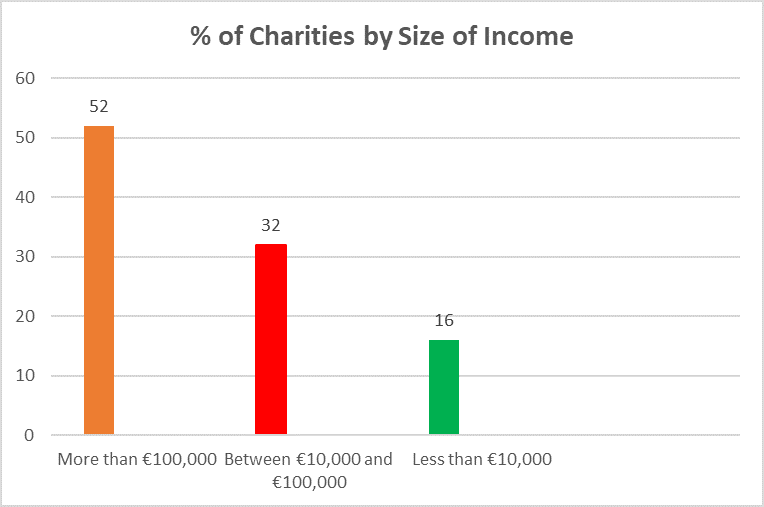
52% of charities had annual income of more than €100,000, 32% had annual income of between €10,000 and €100,000 while there was a sizeable 16% of charities with income per annum of less than €10,000.
Within the 2,165 charities reporting an annual income of over €250,000 in 2019, 875 (40%) had income in excess of €1 million.
Charities by Employee Numbers
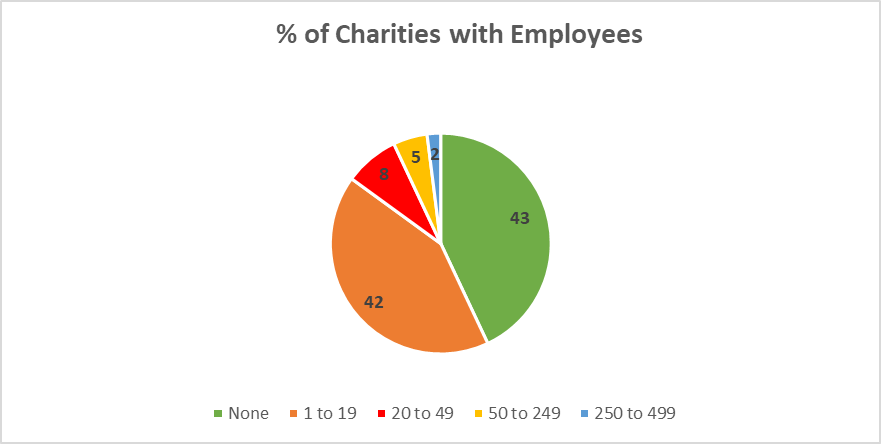
43% of charities had no employees. 42% reported having between 1-19 employees, 8% had between 20-49, 5% had 50-249, while 2% had between 250-499.
The 2019 Charities Regulator Annual Report can be found here.
Our Charity Accounting and Charity Audit webinars are available here for immediate access and come with much support material as an extra free bonus.
We also have several audit template letters for charities that are up to date for FRS 102 SORP, GDPR and Coronavirus (COVID-19) downloadable for immediate tailoring in MS Word.
For a full list of all our webinar recordings, please go to our webinar site here. They may be viewed at any time for 12 months after the date of purchase.
We also have a complete set of charities letters of representation in our publications store, updated for SORP and Coronavirus (COVID-19), and letters of engagement for immediate download here. There are also versions available for charities not yet implementing the SORP.











